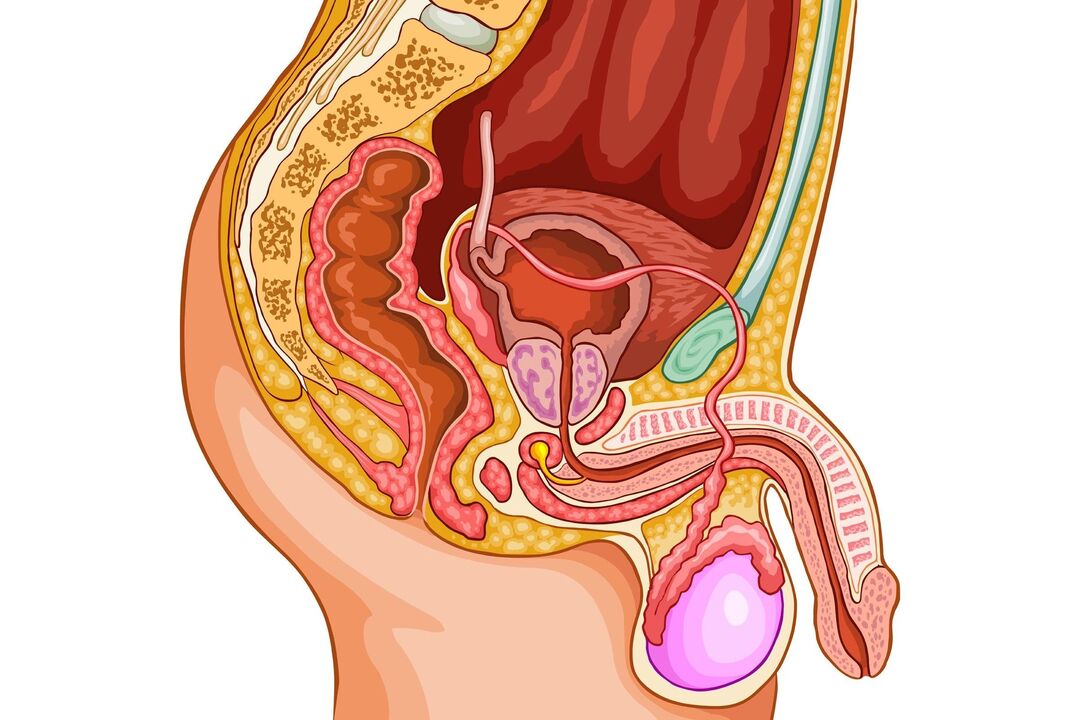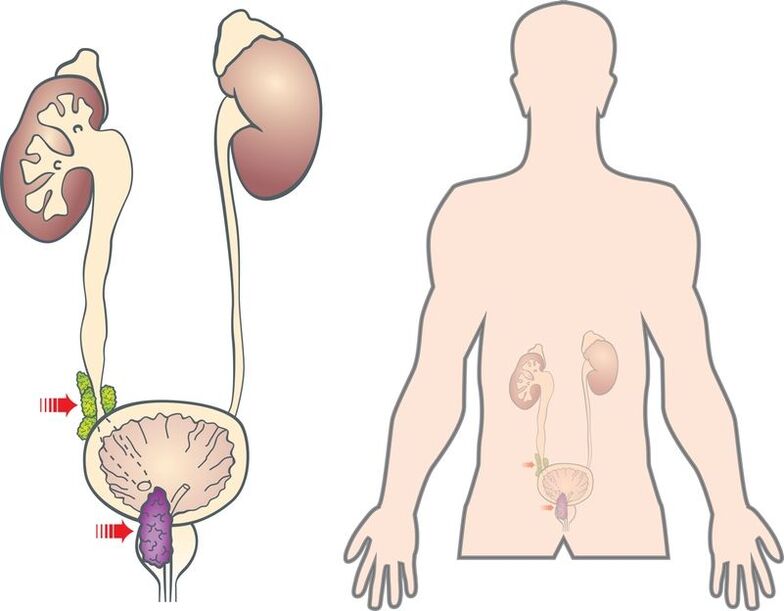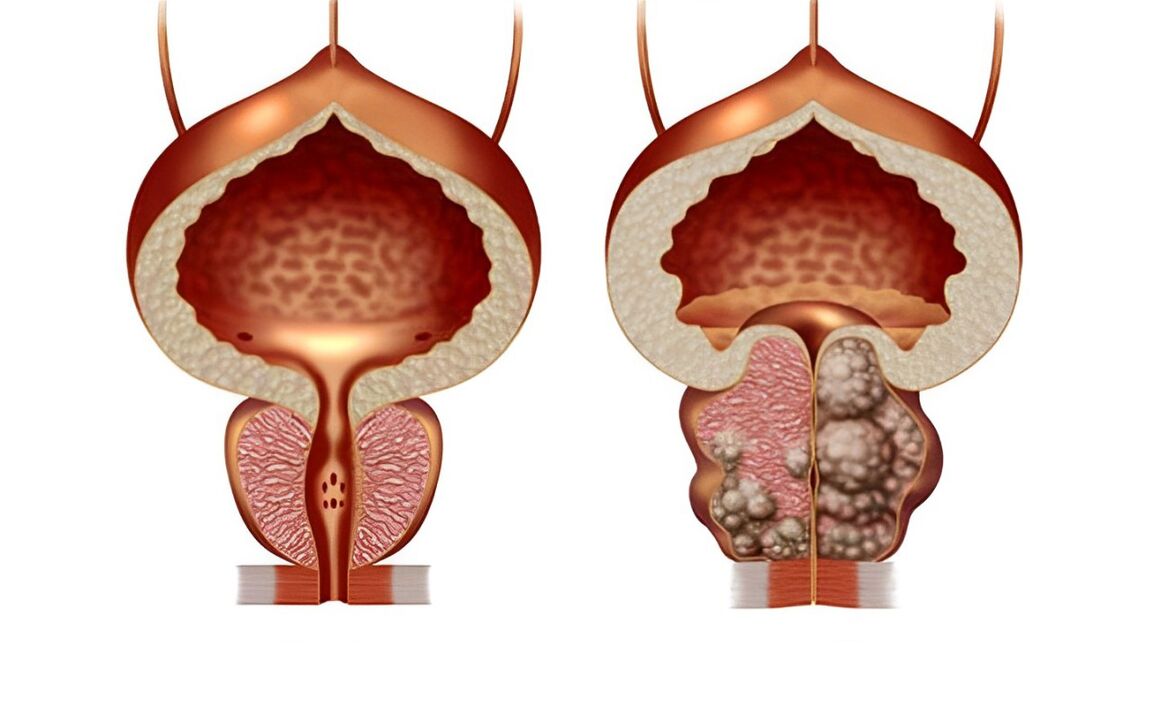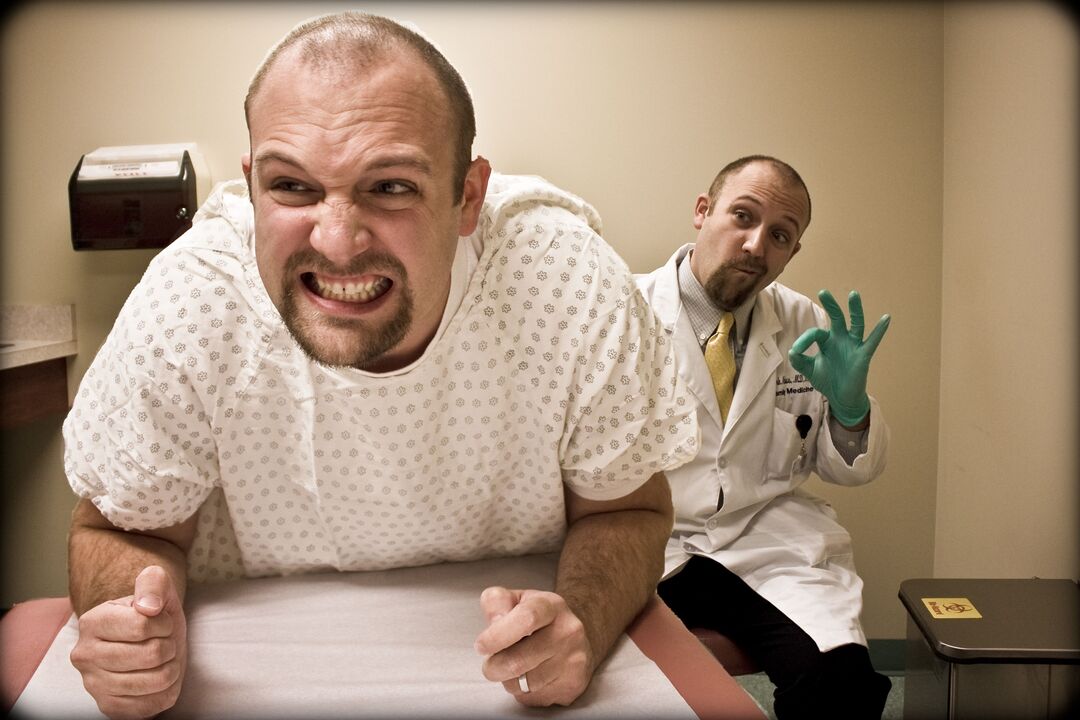
What is prostatitis and how is it treated?
Characteristics of the inflammatory process of the prostate (prostatitis)

- Congenital (decreased hormone levels, impaired blood flow to the prostate, pathological changes in acinar structure);
- Acquired (previous genitourinary disease, presence of foci of infection in the body, promiscuity or, conversely, long-term abstinence, sedentary lifestyle, temporary decrease in body temperature).
Pathological types and therapeutic drugs
- Chills;
- Increased body temperature;
- signs of generalized intoxication in the body;
- Frequent urination with pain and purulent urethral discharge;
- Pain in the groove area, radiating to the lumbar spine.
- irritability;
- Difficulty urinating with burning sensation;
- Perineal pain persists, radiating to pelvic organs and rectum.

In addition to antibiotics for the treatment of acute prostatitis, analgesics, immunomodulators, suppositories, therapeutic massage and physiotherapy are also prescribed.
asymptomatic prostatitis
Medication forms for treating prostatitis
Among the various methods of treating the prostate, rectal treatment is the most effective.

Drugs to treat prostatitis in men
Medications with analgesic properties can significantly relieve the inflammatory process, but they should be used strictly according to the doctor's prescription. Uncontrolled use of these medications may cause unwanted side effects.

Any pathology, including prostatitis, leads to a weakening of the body's immune defenses, therefore, in addition to the main treatment, doctors also prescribe drugs aimed at restoring and strengthening the immune system. These may be drugs from the immunomodulator group, which includes interferons and other pharmacological agents.

Additionally, treatment of prostate inflammation involves the use of medications designed to improve blood flow to the prostate.
Commonly used drugs to treat prostatitis
This medicine is used for the comprehensive treatment of complicated prostatitis. The course of treatment lasts 4 months. The drug has no contraindications or side effects.























